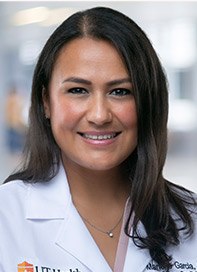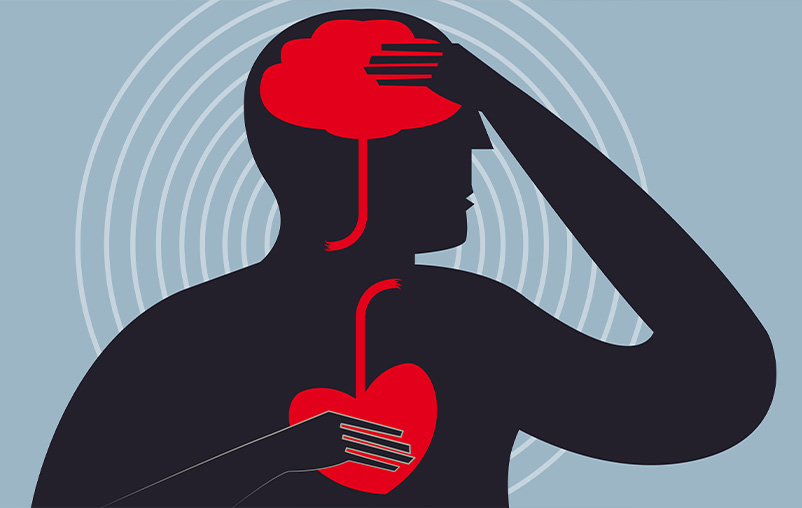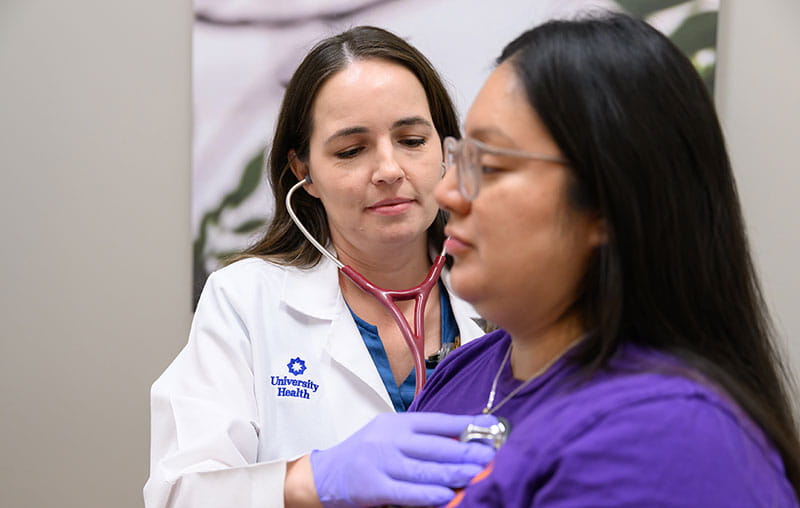Heart disease is the No. 1 killer of adults in the United States. It was responsible for 1 in 5 deaths in 2020.
While the term heart disease covers many conditions, the most common condition is coronary artery disease. It is the result of plaque building up in the walls of the arteries and limiting blood flow to the heart.
“Plaque is cholesterol buildup, and that cholesterol can lead to the narrowing (of the arteries) that can cause chest pain, heart failure or even heart attacks,” explained Dr. Marlene Garcia, a cardiologist with University Health and UT Health San Antonio.
It makes sense, then, that if you can limit the amount of cholesterol and the accumulation of plaque you could possibly prevent a heart attack, right?
Absolutely, Garcia said. “A lot of that involves just being as healthy as possible, and making sure you prevent the onset of diabetes and high blood pressure,” says Garcia.
Maintaining your artery health is key to a healthy heart. To do so, Garcia recommends that patients know their risk factors and take steps to reduce and control them.
Top Risk Factors for Heart Disease
Almost half of all people in the United States have one of the three primary health risks for heart disease: high cholesterol, high blood pressure or they smoke. The good news is you can lower all of those risks.
For high cholesterol, the American Heart Association recommends you do three things:
- Check your levels through a simple blood test. You will learn about your so-called good and bad cholesterol levels and whether you need to make changes.
- Change your diet and lifestyle. Limit your consumption of saturated or trans fats found in meats and dairy products. Increase physical activity. Get help to stop smoking.
- Follow your doctor’s advice if they prescribe cholesterol-lowering medications. Lifestyle changes may not be enough, especially if heart disease is common in your family.
Managing your blood pressure also begins with regularly measuring it at home or with the help of your medical provider. Healthier eating, preventing obesity and getting more exercise can help. Your doctor may also recommend medicine if those changes do not bring it under control.
Other Risk Factors for Heart Disease
The Centers for Disease Control and Prevention includes the following resource links for other conditions that may promote heart disease:
How can I Learn My Risk for a Heart Attack or Stroke?
“Unfortunately, we don't have a magic test that can say, ‘Oh, you're going to have a heart attack definitively within the next five years,’” Garcia said. Risk calculators, however, like the online calculator provided by the American College of Cardiology, estimate the likelihood of a heart attack or stroke for those not yet diagnosed with heart disease.
“We're able to take your cholesterol level, your blood pressure and other risk factors and come up with some sort of risk over the next 10 years of your having a heart attack. Then we can give you recommendations on how to prevent that,” Garcia said.
Special X-ray technology used in coronary CT scans can also show how much plaque is already deposited in your arteries. If the accumulation is limited, your doctor may be able to prescribe a treatment to prevent the formation of new plaque and dangerous blockage in your arteries. Medical experts warn, however, that there are some risks to relying on these scans. They can lead to overtreatment, exposure to radiation and extra costs that insurance may not cover.
The bottom line is that we can all take steps to reduce the likelihood of a heart attack. Getting medical advice to help us on that journey may mean we will not be among the 1 in 5 who fall victim to heart disease, making it the leading cause of death in our country.
Cardiology at University Health
Learn more about the nationally recognized cardiology care at University Health.

Heart disease is the leading cause of death for both men and women.
Our free online risk assessment only takes a few minutes. It will help you better understand your risk of developing heart disease and how you may be able to lower it.





